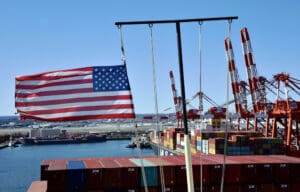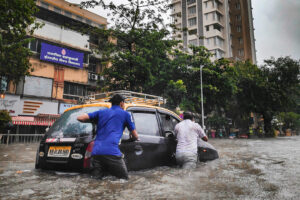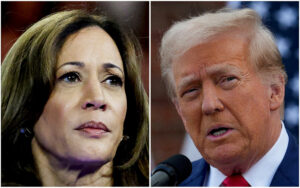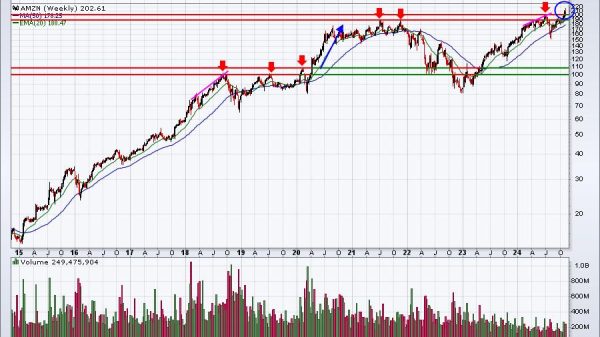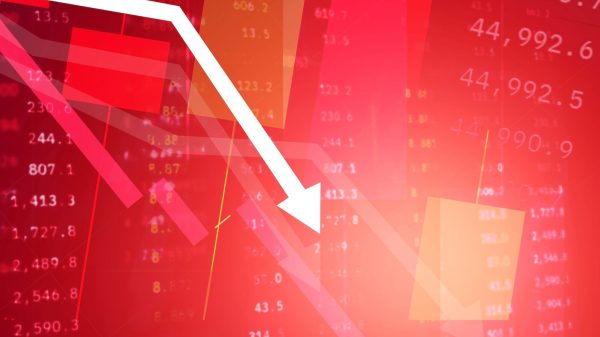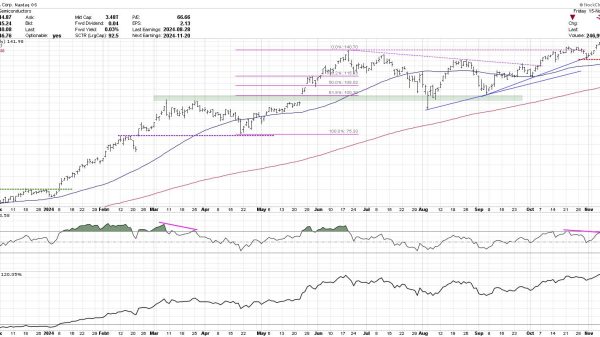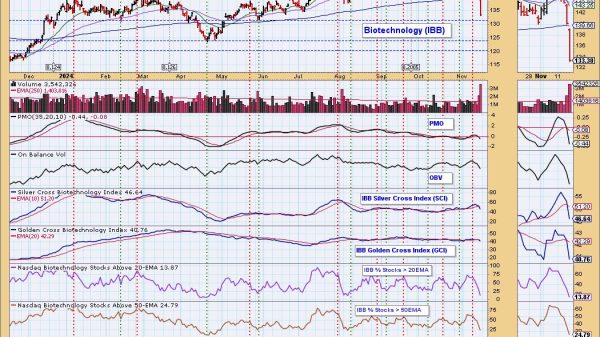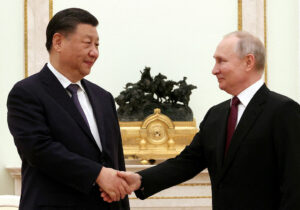CHINA’s President Xi Jinping was due to depart Moscow on Wednesday after a grandiose display of solidarity with Russian President Vladimir Putin against the West, but without offering direct support for Mr. Putin’s war in Ukraine.
During his two-day visit Mr. Xi barely mentioned the Ukraine conflict and said on Tuesday in final remarks that China had an “impartial position”.
Responding to the Xi-Putin meeting, the White House said China’s position was not impartial and urged Beijing to pressure Russia to withdraw from Ukraine’s sovereign territory in order to end Europe’s biggest conflict since World War II.
As Mr. Xi prepared to leave Moscow, air raid sirens blared across the Ukraine capital Kyiv and in Ukraine’s north and east, with reports of drone attacks, but no major destruction.
Heralded by the Kremlin as a show of support from its most powerful friend, Mr. Xi’s visit to Moscow featured carefully staged pomp and ceremony, but the spectacle was also marked by plenty of demonstrative bonhomie between the two autocrats.
Mr. Xi and Mr. Putin referred to each other as dear friends, promised economic cooperation and described their countries’ relations as the best they have ever been.
A joint statement included familiar accusations against the West — that Washington was undermining global stability and NATO barging into the Asia-Pacific region — while also asserting that the close partnership between China and Russia did not constitute a “military-political alliance.”
On Ukraine, Mr. Putin praised Mr. Xi for a peace plan he proposed last month, and blamed Kyiv and the West for rejecting. The West sees China’s peace plan as a ploy to buy Mr. Putin time to regroup his forces and solidify his grip on occupied land.
China’s 12-point plan has no specific details on how to end the bloody year-long war, which has claimed tens of thousands of lives and forced millions to flee.
The West has sought to isolate Russia through global sanctions and Mr. Putin faces an arrest warrant from the International Criminal Court.
China has not supported any of the moves and the West is concerned it may help arm Russia in its conflict, which Beijing has denied.
As Mr. Xi and Mr. Putin ended their talks on Tuesday, the International Monetary Fund announced preliminary agreement with Kyiv on a four-year loan package of about $15.6 billion to the shattered country.
The money would help shore up Ukraine, which has suffered extensive damage to its infrastructure and economy during Russia’s year-long assault.
In remarks after his summit with Mr. Xi, Mr. Putin condemned British plans to send tank ammunition that contains depleted uranium to Ukraine, and warned of repercussions.
“If all this happens, Russian will have to respond accordingly, given that the West collectively is already beginning to use weapons with a nuclear component,” Mr. Putin said, without elaborating.
A day earlier, Britain’s Minister of State for Defense Annabel Goldie had said some of the ammunition for the Challenger 2 battle tanks that Britain is sending to Ukraine includes armor piercing rounds which contain depleted uranium.
Separately, the United States intends to speed up delivery to Ukraine of 31 Abrams battle tanks to the autumn, Pentagon spokesperson Brigadier General Patrick Ryder told reporters.
Kyiv had clamored for tanks as well as other sophisticated Western military hardware as the conflict has slowed to a war of attrition with both sides suffering heavy losses.
The Pentagon said a decision to send a variant of the tank that can run on diesel fuel like most of the Ukrainian fleet made faster delivery possible.
President Volodymyr Zelensky once again implored Ukraine’s allies to provide more military aid including ammunition and to do it without delay.
“One of the questions which always commands the utmost attention is the supply of ammunition, support from our partners. We expect increased supplies of exactly what we need — and we need it right now,” he said in a video address on Tuesday.
European Union countries on Monday pledged to send 1 million artillery rounds over the next year to Ukraine, which has been burning through them faster than allies can supply them. — Reuters



